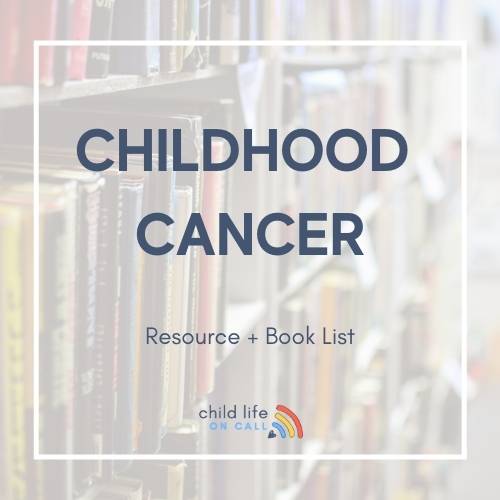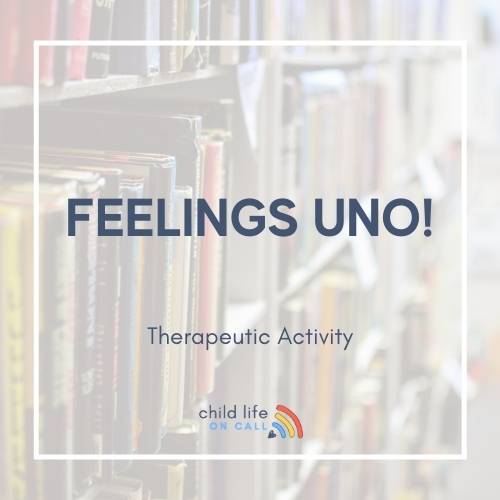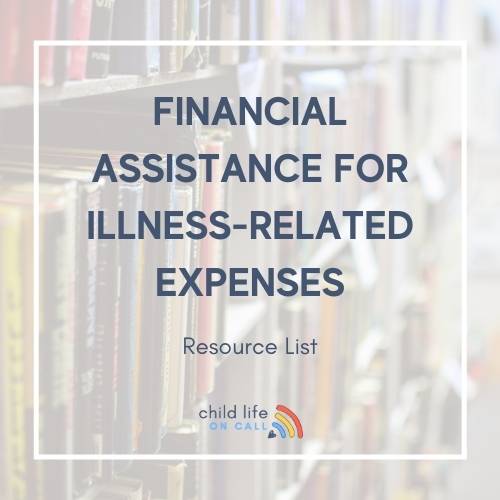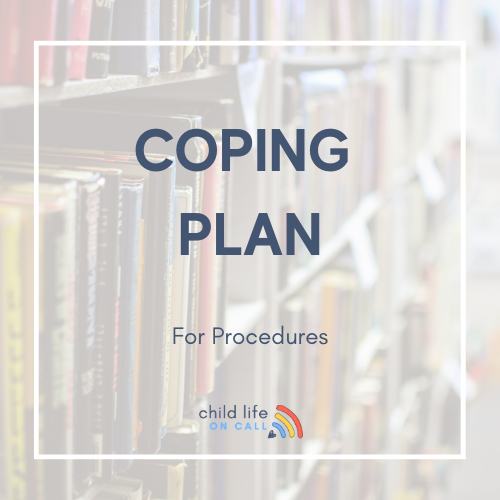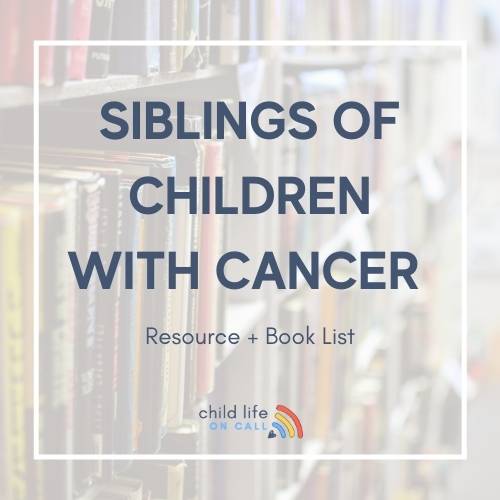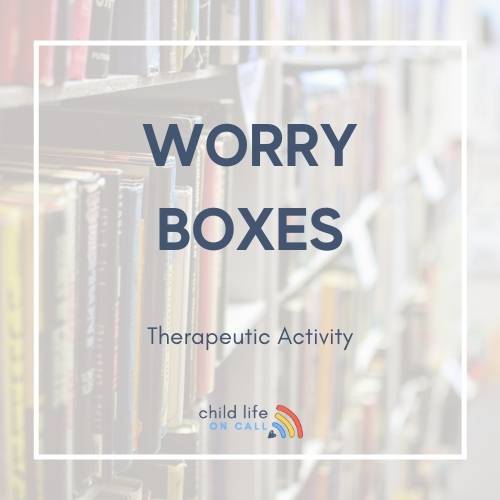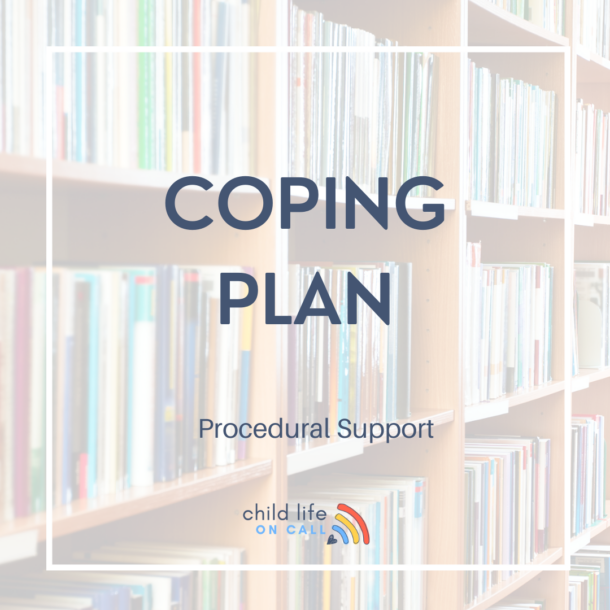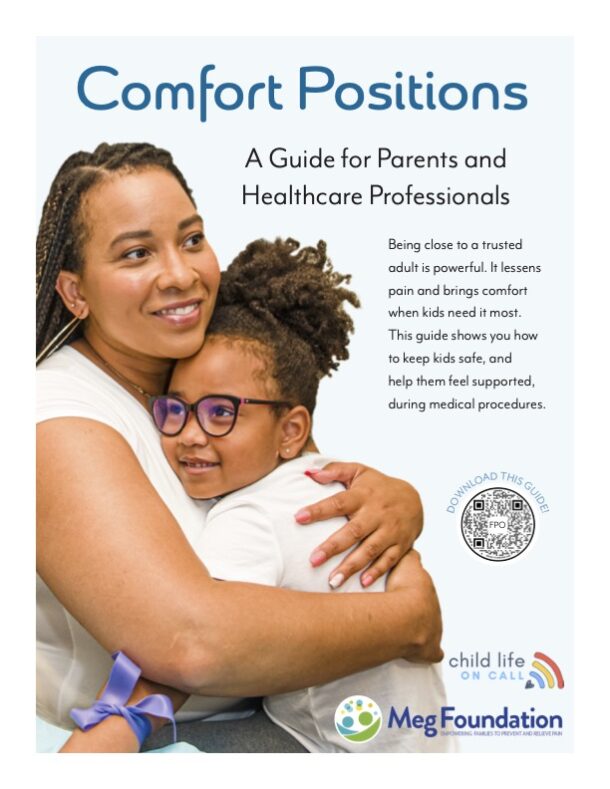"I feel like I owe it to him to explore other avenues. Acceptance doesn’t mean giving up; it means continuing to learn and adapt."- Lexi In this episode of Child Life On Call, Katie Taylor speaks with Lexi, a devoted mother of two, about her family's journey with...
Episode 182 | Virtual Child Life Services in the Hospital with Sarah Lanham
Podcast Show Notes
In a world where virtual healthcare is becoming the new norm, one Child Life Specialist is revolutionizing the way children and families prepare for medical procedures. But what happens when this virtual approach becomes overwhelming and she can’t take on more than she can handle? Find out in this riveting podcast episode that explores the challenges and possibilities of a virtual Child Life Specialist program.
Emailing has been a more successful method for outreach, as it allows families to respond at their own convenience, resulting in greater engagement and participation. – Sarah Lanham
My special guest is Sarah Lanham.
Sarah Lanham is a trailblazer in the realm of child healthcare. As a Certified Child Life Specialist at Helen DeVos Children’s Hospital in Michigan, she has single-handedly carved out a niche for virtual child life services. In an era defined by digital innovation, Sarah adeptly pivots to meet the contemporary needs of patients, harnessing technology to break down barriers and create a more approachable face to hospital visits for children. Her expertise, enthusiasm, and passion for her work make Sarah a true asset to her profession.
This is Sarah Lanham’s story:
Sarah Lanham’s journey into the world of virtual child life specialist began with a twist of fate. When her hospital had to downsize their ChildLife program due to the pandemic, she found herself on a unique path. She had been laid off from her role as a ChildLife assistant and was navigating a Practicum and internship. In the background, the hospital had initiated a virtual program for children needing pre-surgical tours. The concept was new, but the demand was high. With a stroke of luck, a position opened up just as Sarah returned to the hospital as a PRN. The role was hers. Sarah now had the opportunity to shape and grow a program that was transforming the healthcare experience for children and parents alike. She found that speaking with the children from the comfort of their homes, answering their queries, and alleviating their fears before surgery was far more impactful than she could have ever imagined.
In this episode, you will be able to learn about:
- Daily Responsibilities
Handling daily responsibilities when working remotely still requires a significant level of organization and thoughtful communication. The ongoing task for any child life specialist is to ensure each individual’s needs are addressed. It often involves multi-tasking, such as managing phone calls, FaceTime, scheduling Zoom appointments, and collating relevant information for smoother hospital visits. Sarah Lanham managed to deliver outstanding service in a role that was designed for in-person engagement. She would start her day by preparing a list of families to reach out to, ensuring each would have a personalized walkthrough of their upcoming hospital visit. During these 30-minute virtual visits, Sarah would engage the children in conversation, addressing any concerns or queries they might have, which goes a long way in ensuring a calmer, more informed visit later on.
- Impact and Feedback
Undoubtedly, the switch to virtual services had a profound impact not only on the families but also on the hospital staff. Observing the positive changes in the families and their experiences, their feedback was a testament to the effectiveness of this model. According to Sarah Lanham, it’s no secret that family experiences improved dramatically after introducing virtual tours. Families, who were once anxious about an upcoming visit or procedure, felt more relaxed and prepared. The hospital staff also noticed how children who had prior virtual visits felt empowered, and had a much better understanding of the procedures. Sarah enjoyed it most when children would come into the hospital and ask for her by name, proof that the and relationship-building element in healthcare was intact even in a virtual mode of operation.
The resources mentioned in this episode are:
- Visit the Child Life On Call website to learn more about their services and how they can support children and families in healthcare settings.
- Contact Helen DeVos Children’s Hospital to inquire about virtual Child Life On Call services and how they can benefit your child.
- Consider scheduling a virtual presurgical tour with a certified Child Life On Call specialist to help prepare your child for their upcoming surgery or medical procedure.
- Explore the option of virtual visits with a Child Life On Call specialist for outpatient surgery centers, radiology, sedation, or other medical appointments.
- Share your positive experiences with virtual Child Life On Call services with your healthcare providers and encourage them to offer this valuable resource to other families.
- Support the growth of virtual Child Life On Call programs in hospitals by advocating for funding and resources to expand these services to more children and families.
- If you are a healthcare professional or student in the field, consider exploring opportunities to become a certified Child Life On Call specialist and contribute to this innovative approach to patient care.
- Share this podcast episode with other parents, professionals, or anyone interested in learning more about virtual Child Life On Call services and the impact they can have on children and families in healthcare settings.
Whether you are a parent or professional, we want you to join our community. Sign up for our newsletter here.
Parents, download our free parent starter kit.
When you download our starter kit, you’ll learn how to:
- Give medicine to your child without it becoming a wrestling match
- Prepare your child (and yourself) for a shot so they can feel less anxious
- Create and use a coping plan for any medical appointment or procedure
The first sign of sniffles, or worse, shouldn’t send you into a tailspin. Feel confident in your role as a parent and advocate, no matter what medical situation you’re facing.
Child life specialists, get affordable PDUs on-demand here.
Shop for your CLOC gear here.
00:00:00
You’re listening to episode 182, virtual Child Life On Call Services in the Hospital. Hello, my friends. Welcome to Child Life On Call on call. This podcast is a safe place for parents to share their stories about what it’s like to have a child that has a medical experience, diagnosis, disease, and or everything in between. We know there is power in sharing stories, and that power multiplies when you can listen to other parents who have walked a similar path to yours.
00:00:28
Giving and getting advice is great, but hearing how another parent navigates the complexities and nuances of healthcare is even better. As a Child Life On Call, my role is to support, validate, and provide emotionally safe spaces for kids and their families, and I am so honored to be on this journey with you. In addition to parent stories, we sprinkle. In some expert episodes every now and again that have content for both parents and professionals in the field of healthcare, all with the mission to empower parents to be confident advocates and partners with the care team during healthcare experiences. We’re so glad you’re here.
00:01:05
Hello, my friends. I’m so happy that you’re here today with us. It’s an exciting day because I get to share with you Sarah Lanham, who is a certified Child Life On Call working at Helen DeVos Children’s Hospital. And she is doing something outside of the box. I have never gotten to interview someone who is doing Child Life On Call services like she is, and I doubt many of us have even seen how this really plays out in children’s hospitals.
00:01:30
And I’m talking all about virtual services, so she actually doesn’t see patients face to face. She sees them via phone calls and FaceTime and zoom appointments and all of that good stuff. If you are just joining us for the first time and you don’t know what a Child Life On Call is, that’s okay. You’re still welcome here. We work in hospitals, healthcare settings and community settings and help kids and families cope with diagnosis, illness, treatment, challenging life events, and overall how child development plays into coping skills and psychosocial care.
00:02:07
So we’re so happy that you’re here, whether you’re a parent or professional or just really curious about how Sarah is operating in a hospital system in a virtual capacity. I mean, it’s really exciting stuff. So let’s go ahead and get started with our conversation. It’s always fun for me to have another Child Life On Call specialist on the podcast. I just got done with another interview with a mom, and she was literally speechless about what Child Life On Call, and in their case, canine therapy, did for them.
00:02:37
And just that it totally changed everything. And I was like, I hope you tell your Child Life On Call that, because we don’t always get to hear those types of things. So I’m telling you, and I’m saying, thank you for doing what you’re doing, but please tell us a little bit about you. Give us your name, your background, all that good stuff. Yeah.
00:02:54
So my name is Sarah Lanham. I am a certified Child Life On Call here in Grand Rapids, Michigan. I work at Helen DeVos Children’s Hospital and I am actually a virtual Child Life On Call. So I am doing virtual visits with kiddos coming in even before anything that they have done at the hospital or inpatient or outpatient. That’s amazing.
00:03:18
How did you transition into this role? And have you always been virtual? Did you help make it happen? How did you get because this hasn’t caught on at a lot of hospitals. No, no.
00:03:31
So COVID hit and our hospital had to downsize our Child Life On Call program. And so I was working at the time as a Child Life On Call assistant here, got laid off. And it was actually the perfect timing because I was able to do my Practicum and internship during that time. And then kind of in the background when I was doing all that, they started this virtual program and they were just doing it. Kids coming in before surgery, just because we have those pre surgical tours that families were able to come in.
00:04:02
And when COVID Hit, it was like. What do we do now? And so it felt easy for them to be like, yeah, we’ll do virtual. But I think a lot of hospitals were doing the same thing. So once we kind of started it, which I wasn’t involved in starting it, once they started it, they kind of just clicked and they had more and more.
00:04:24
And then they tried to get funding for an actual position, and they did. And so by that time, I was working PRN at Helen DeVos. So I had come back, I was working PRN, wanting full time, and this position opened up and it kind of just fell into my lap. So it’s been fun to kind of grow the program because, like, you like, there’s not a lot of hospitals. I know Taylor just had one get approved the position, but other than that, there’s not any.
00:04:56
I haven’t really talked to a ton. I’ve talked to you, obviously, about just doing virtual visits with families, but it’s so new and it’s hard, but it’s also so rewarding. Yeah, well, it’s just a whole new twist and outlet where Child Life On Call can grow into and I have to say, totally applaud your hospital, Helen DeVos, for saying yes, being open to trying something new and then realizing how important, necessary it’s. Yeah, it’s been really cool to see the hospital grasp onto it, too. And even families are just like, oh my gosh, that would be so helpful.
00:05:35
And them being able to do it from their home, a place where their child feels comfortable and in their safe space, talking about something that could be scary for them and that they’ve never done before. So that’s been really cool too, because I had never done an actual presurgical tour, so I don’t really know how that went. But it’s a lot to come to the hospital do a tour and then, oh, just kidding, you’re not having surgery today. We’re going to come back. And then potentially they could be like, no way, I don’t want to come back.
00:06:07
So having them in their safe space has been really cool and I’ve gotten a lot of good feedback from parents about it too. It just virtual removes barriers and it improves access for more families. And those are just two non negotiable important things for families to feel safe. Absolutely. So talk to us about your process and your job and what it looks like.
00:06:30
And you’ve talked about what a pre surgical tour is. Tell us what you do as a part of your job every day. Yeah, so since we’re kind of still in the beginning parts of it, I say beginning, but it’s been almost a year since I’ve taken over this role and so there’s a lot of behind the scenes, but I’m still doing some cold calling. So usually in the mornings I will get my list together of the people that I need to cold call that day to offer a presurgical tour. I do presurgical tours.
00:07:03
I also do our outpatient surgery centers. I do radiology and sedation, so I’ll do those tours. I have just jumped into the Cardio Clinic, which has been really cool, and then also Child Life On Call. So I’m offering whenever someone comes in. So I’ll look at those schedules about two weeks out, decide two weeks out from today.
00:07:24
These are the kids that are coming in. That would be appropriate. I usually shoot for two to like 15 ish. Obviously there’s exceptions and everything. So I’ll build that list and then I’ll call families.
00:07:39
When I do get a hold of them, we will set a time to meet with me. We’ll set that time and then yeah. So it’s usually that’s in the mornings. In the afternoons it’s more a lot of visits. So that looks like I have a presentation that I have pictures of our hospital from.
00:07:58
This is where you park, you walk across our bridge. This is our front desk. This is the elevator you’ll go down. So it’s like showing them actual spaces that they will see and walking them through the day for surgery if they’re going to get an IV before surgery. I know a lot of families are worried about their kid getting an IV and I’m like, well, they won’t get it until they’re asleep, so that can take a lot of pressure off of the day too.
00:08:25
So the visits are usually a half hour ish. So kind of walking through the day and then answering any questions that they have. It’s geared way towards the kids. But I’ve done it just for parents too. I know a lot of two year old parents are like, my kid won’t really sit still for this whole thing, but I’m really nervous too.
00:08:48
And so I’ll absolutely do that for them too. Wow. What if your child life or clinician counterparts in the surgical or radiology or wherever the patient is going to? What have they said in their opinion about this new service that you’ve offering? How are families coming in?
00:09:09
Yeah, it’s actually been really cool. I’ll walk in our surgery center and they’re like, you’re so popular, because they’ll come in and they’re like, well, I know I’m going to color my mask and I’m going to put on my hospital gown, and you have to do vitals. And they’re like, Whoa, we are so not used to this. But it’s also awesome to hear that just because they feel like they’re in control, they know exactly what the day is going to bring. So almost teaching the nurses and staff there, it’s really cool.
00:09:40
I don’t feel like sometimes kids don’t really grasp what you’re saying, but it’s really cool when they do come in and say, like, this is what I’m doing. They really understood and listened and heard what we were talking about. How huge that kids feel empowered enough to come in and be like, all right, let’s get vitals done. I’m ready. That’s just amazing.
00:10:03
Tell me more about kind of the process when you’re in a virtual visit, because we know that sometimes things can come up, and that looks like tech issues. It looks like ten minutes of just getting the child comfortable with you. A child who doesn’t want to speak back to you. How do you handle those challenges? Yeah.
00:10:25
We have Epic, so we do it on telemed calls. When I talk to the family, I’ll make sure that they’re comfortable with it. If they’re not, I’ll do like a teams call if it’s easier for them, but in terms of making sure the patient’s comfortable, it’s just kind of jumping in. Talking to that patient, I usually start it like, oh, your name is this? And they’re like, yeah, how did you know?
00:10:51
And so then just, like, asking how their day is. Did you play outside today? Just starting. It like, that just a normal conversation instead of jumping into you’re coming to the hospital. So building that rapport with them even before we jump in, if they’re so shy, which I’ve had shy ones.
00:11:09
I’m like, you know, I’m going to show mom these pictures, and if you want to sit next to mom, you are more than welcome to mom can ask me some questions, and then they generally will be like, no, I want to be involved too. What I hear is it’s not any different than what we do in real life. No. Except they’re not right next to you. Yeah.
00:11:29
And they’re a little bit more in control. Right. Because absolutely, when you’re with a child in a small room, they can’t get up and walk away, but if they’re overwhelmed, they actually have the autonomy to get up and do that or give you cues and signals and it’s really amazing. Yeah. It’s really cool.
00:11:48
Just even I always talk about for presurgical tours, like, you can bring a stuffy if you want, or a blanket, your favorite blanket. And then they always get up and they’re like, oh, I’ll go get mine and show me. And so it’s like they’re understanding. They’re showing me what they’re going to bring, and they’re almost excited about it too. Has staff found that families are coming in less anxious, less fearful, or have you gotten any reports or tracking about that?
00:12:19
Yeah, so I’ve gotten actually more referrals from people come in and they’re saying, we actually had a virtual visit and it was super helpful. And so they’re like, okay, wait, how do we refer families so that more families can get it? So I think coming in, they’re definitely less anxious. But then staff are way on board and they’re like, all right, we need more visits before because it goes so much smoother. Yeah.
00:12:49
And wow, that’s amazing. What has been your favorite part of being the virtual visit? Child Life On Call? I think my favorite part is when they come in and they’re like, Where’s Miss Sarah? And I’m like, I just do this.
00:13:05
But then they tell the specialist that works in surgery or radiology Sedation, they’re like, this is what we did. And it was so cool. He or she was so nervous, didn’t even want to talk about coming to the hospital. And afterwards, they wanted to tell all their siblings about it and went to school and talked about it. And so just not knowing how much of an impact you’re making.
00:13:30
But it’s such an impact. So I think that’s my favorite part of just hearing the praises of this simple thing, that this is what I would love to do. So it’s so easy for me, but it can make such a difference in a child’s life. Wow. And are you charting on these interactions?
00:13:48
And how do you guys do that handoff? If you get some information from a family that this is a really big trigger or they have sensory preferences, how does that handoff work? Yeah, so I chart on every patient that I see, so anyone who is seeing them also can see that I saw them. But if there is something very important, a family situation or something that I want to make sure that they know, I will send them a message directly. The specialist that works in that area just, hey, I had a virtual visit with them.
00:14:21
They brought up this. I just wanted you to be aware. It’s a constant. I’m constantly sending it to them, and I’m like, Is that too much? And they’re like, no, we need all the information we can get.
00:14:34
And it’s also in the chart, but it’s different when you’re getting a message just to you with stuff that just you need to know too. I think the handoff is going really well. I think the specialists have said that it has helped their interactions too, because they know what they’re walking into. Yeah. Just so impactful for the families, but such a time saver when we work in a world where we have way more patients than we do.
00:14:57
Child specialists. Yes. One of my favorite questions is to ask if you had a magic wand and you could do anything in terms of your position, what would you do?
00:15:15
I would have more of me just so that we can reach more people. I have this list of departments that I try to cover, but I don’t want to bite off more than I can chew. And so if that looks like, could I do virtual visits for siblings that have siblings in the NICU? Can I do more in the outpatient setting in ortho stuff like that? And I don’t have the time in a day to be able to do all that.
00:15:47
And so I think more of this position would be amazing for our hospital. I think all hospitals need a virtual visit. Child Life On Call I think it’s super helpful. Wow. And my last question is how does the cold calling and transition into actually scheduling a meeting?
00:16:08
Do you know what that success rate is between you reaching out and actually having the visit completed? Yeah. So I’ve actually had more success with emailing and I think just in our day and age, if I get a call from a number I don’t know, I’m not going to answer it. Same. Right.
00:16:27
And even if they leave a voicemail, I’m like, okay, do I want to do it? Do I not? I have to call them back. And so I feel like emailing has been a lot more successful just because you get an email and you’re like, oh, my gosh, yeah, that’s so and then you can respond whenever you want after the kids go to bed and not in the middle of your workday. So I feel like that’s been very successful.
00:16:51
I think going through epic, they get all the reminders. It’s just like a normal appointment too. So they’re getting the reminders like one day until your visit. I would say 90% of my visits show up just because they get those reminders and everything. It hasn’t always been that way.
00:17:11
We’ve been doing it. They started doing it just on teams. And I think there was more people not showing up just because you didn’t put in your calendar. You kind of forget about it. You’re not getting those reminders.
00:17:22
So technology is amazing. That’s incredible. Well, thank you for doing what you do, for saying yes to something new, being open to learn and sharing it with so many people. And I can’t wait to see what you continue to discover. Thank you so much.
00:17:39
Of course. Bye.
You Might Also Like…
223: A son with Burkitt lymphoma at 8 year’s old – Reina’s Story
"My immediate thought was I'm going to lose my son. That was where my head went immediately." - Reina Introduction In this episode of Child Life On Call, Katie Taylor talks with Reina, a devoted mother from Nashville, Tennessee. Reina shares her heartfelt journey of...
223: [6 minutes] The Child Life On Call App is Now SupportSpot!
Episode Description: In this special impromptu episode, Katie Taylor, Certified Child Life Specialist and CEO of Child Life On Call, shares some exciting news! We're rebranding our beloved Child Life On Call app to SupportSpot. Tune in to hear why we made this change...

